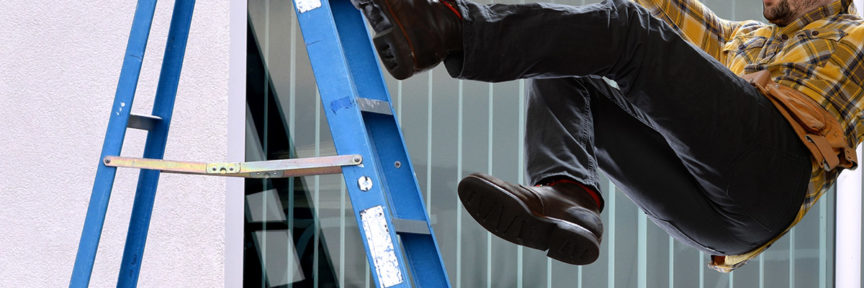You can work for years and hardly get a scratch, then one day a fall can turn your life around. Fall injuries may cause abrasions, fractures, and dislocations. However, the one of the most serious results of a fall can be a head injury. How this will affect you depends upon which part of your brain has been injured as a result of a fall or impact. Broken bones usually heal, but head injuries can result in lifelong serious problems, such as:
- Changes in personality, such as increased anxiety, depression or anger.
- Difficulties with eye-and-hand coordination, and inability to handle tools or play sports well.
- Defects in vision and visual illusions.
- Short-term memory loss or interference with long-term memory.
- Increased aggressive behavior.
- Difficulty in distinguishing left from right.
- Changes in social behavior
How you fall often determines your specific injury.
From the time a worker loses a secure grip, footing, or balance until impact, several factors influence what part of the body will be injured and how severe the damage will be. They are:
- Distance of the fall—momentum and velocity effect the impact on your body.
- Angle of the body at impact—we’re not like cats landing on all fours.
- Obstacles the body strikes—what if you fall on railings, steps, or vehicles?
- Surface eventually landed on—will it be a pile of hay, or broken concrete & rebar?
What You Can Do: THINK!
- Help remind your employees to play it safe and avoid taking risks.
- Make it a habit to work safely, regardless of time pressures and productivity goals.
- Practice caution at home—accidents and head injuries from falls happen more often off the job than at work.
- Know how to use fall-protection and fall-restraint equipment. Never say, “I don’t need to fool around with that stuff—I’ll only be up there a minute.”
Stay Alert! Head injuries can have devastating consequences that may impact your life forever.

